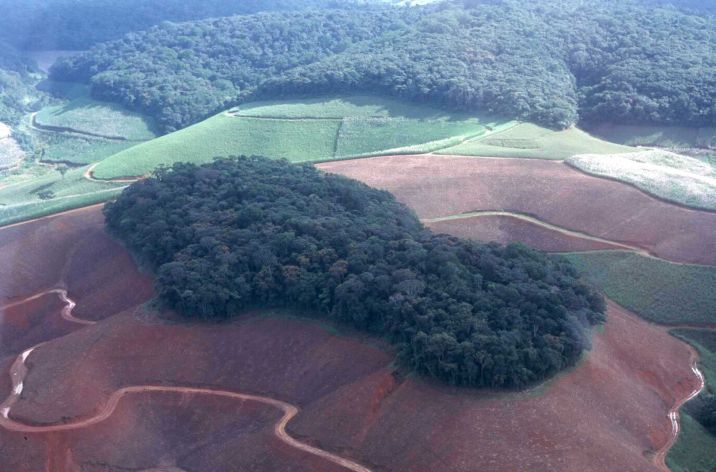How well do we understand landscape effects on pollinators and pollination services?
DOI:
https://doi.org/10.26786/1920-7603(2012)2Abstract
Many studies in the past decade, mostly in temperate countries, have documented the effects of habitat loss and fragmentation on species richness, composition, and abundance and the behaviour of pollinators. Changes in landscape structure are considered to be the primary causes of the limitation of pollination services in agricultural systems. Here, we review evidence of general patterns as well as gaps in knowledge that could be used to support the development of policies for pollinator conservation and the restoration of degraded landscapes. Our results indicate a recent increase in the number of studies on the relationships between pollination processes and landscape patterns, with some key trends already being established. Many authors indicate, for example, that the spatial organization of a landscape has a great influence on the survival and dispersal capacity of many pollinators, as spatial organization affects resource availability and determines the functional connectivity of the landscape. Additionally, the shape, size and spatial arrangement of the patches of each type of natural environment, as well as the occurrence of different types of land use, can create sites with different degrees of connectivity or even barriers to movement between patches, which can deeply modify pollinator flows through the landscape and consequently the success of cross-pollination. However, there are still some gaps, such as in the knowledge of which critical values of habitat loss can lead to drastic increases in pollinator extinction rates, information that is needed to evaluate at what point plant-pollinator interactions may collapse. We also need to concentrate research effort on improving a landscape’s capacity to facilitate pollinator flow (connectivity) between crops and nesting/foraging areas.
Published
2012-06-09
How to Cite
Viana, B. F., Boscolo, D., Mariano Neto, E. marianon@gmail.com, Lopes, L., Lopes, A., Fereira, P., … Primo, L. (2012). How well do we understand landscape effects on pollinators and pollination services?. Journal of Pollination Ecology, 7. https://doi.org/10.26786/1920-7603(2012)2
Issue
Section
Articles
License
Copyright (c) 2012 Blandina Felipe Viana, Danilo Boscolo, Eduardo marianon@gmail.com Mariano Neto, Luciano Lopes, Ariadna Lopes, Patricia Fereira, Camila Magalhães Pigozzo, Luis Primo

This work is licensed under a Creative Commons Attribution 4.0 International License.











